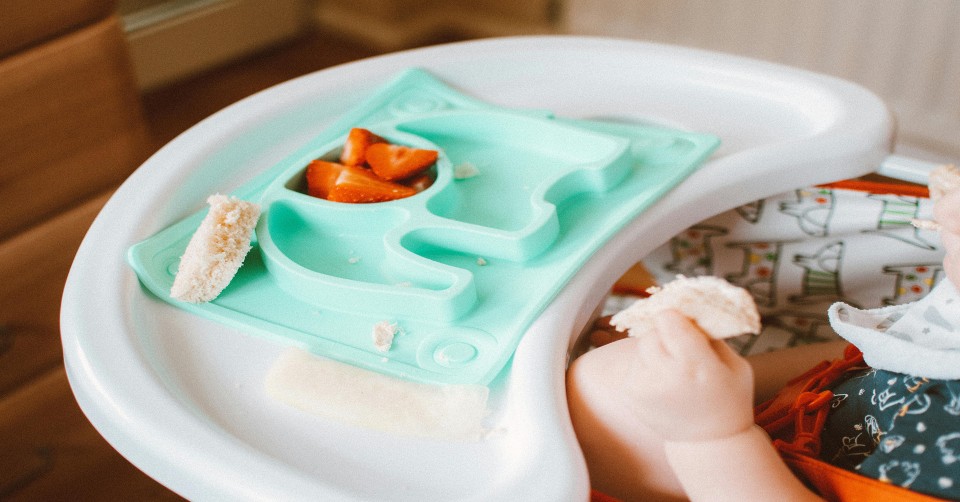Parenting and Education
100+ Expert Parenting Questions & Answers!

Unlock the Secrets to Confident Parenting!
In 100+ Expert Parenting Questions & Answers!, we dive into the most common — and some surprising — challenges parents face today. From toddler tantrums to teen independence, our panel of child development experts provides clear, practical advice to help you navigate every stage with confidence. Whether you're a new parent or seasoned caregiver, this Q&A guide is your go-to resource for smart, supportive solutions.
Q: My 5-year-old wakes up three times a night demanding milk. He screams and says his stomach hurts until I give him milk. How can I stop this habit?
A: Hello dear, it seems your child may be associating milk with sleep, especially if he drinks milk at bedtime. This association could be why he seeks milk when his sleep cycle is in the lighter stages.
We recommend completely cutting milk at bedtime. Offer milk earlier in the evening instead, so that it’s no longer tied to sleep. To encourage him, you can use incentives like a sticker chart and praise, emphasizing that he’s growing older and wiser.
If he wakes up at night, remind him of the incentive, stay calm, and avoid giving in to the demand for milk. It might be challenging, but if you can stay consistent for three days without giving him milk, the habit should break.
Good luck!
Q: How can I get my children to eat vegetables?
A: The key is to choose your battles as a mom. Instead of insisting your children eat vegetables in their traditional forms (like boiled or as a salad), focus on getting them to eat vegetables in any form they enjoy. Here are some creative tips to incorporate vegetables into their diet:
-
Sneak them into meals: If your child enjoys lentil soup, blend vegetables into the soup—they won’t even notice!
-
Bake with vegetables: Add zucchini to chocolate cake for extra nutrients and moisture.
-
Hide them in sauces: Finely chop veggies and mix them into pizza sauce or other favorite dishes.
-
Make them fun and interactive: Arrange vegetables into fun shapes or faces and pair them with a delicious dip. Play games while eating, like “Let’s eat the bear’s nose!”
Remember, your child doesn’t need to love every vegetable. If they’re eating some, that’s a great start. Their taste buds will develop as they grow!
Q: My children love eating out. How can I convince them that homemade meals are better?
A: To encourage your children to appreciate homemade meals, try having a discussion about the health and financial benefits of eating at home. Here are some strategies to make the transition enjoyable:
-
Recreate their favorite meals at home: Focus on their favorite restaurant dishes, like pizza or burgers, and make them together as a family.
-
Involve them in cooking: Create a schedule where your children help in the kitchen. This hands-on involvement makes them more excited about homemade food.
-
Introduce a savings incentive: Use a money-saving jar. Each time they crave eating out, set aside the money you’d spend on takeout. At the end of the month, let them use the savings to buy a favorite toy or outfit.
-
Limit eating out: Agree to eat out once or twice a month as a special family outing instead of ordering takeout. This makes it a meaningful experience rather than just about the food.
These steps can help your children see the value and fun of home-cooked meals while building great family memories.
Q: What is the best age to start reading for my kids?
A: There’s no time like the present—you can start reading to your child from day one! In the early months, it’s less about the story and more about the rhythmic sound of your voice, so feel free to read anything you’re currently enjoying, like the morning paper or a novel.
Between 3 and 6 months, your child will begin to interact with books. Choose short, simple books with textures, mirrors, or flaps to engage their senses. Make reading a cozy, bonding time by cuddling together as you read aloud.
Q: My toddler won’t sit still while we read. Two minutes into a book, she’s off exploring. What should I do?
A: It’s perfectly normal for toddlers to move around—it’s how they explore their world. While it can be challenging to keep them engaged during reading time, here are some strategies to try:
-
Choose short books: Pick quick, engaging stories that match your child’s short attention span.
-
Read during bath time: Read aloud while your toddler enjoys playing in the bath. They can listen while staying entertained.
-
Incorporate reading into bedtime: Since your child is already settled at bedtime, make reading part of the routine. Once this habit is established, try reintroducing those books during the day.
-
Use interactive books: Books with flaps, textures, or pop-up elements can capture your child’s interest as they explore.
-
Try audiobooks: Play audiobooks during car rides or other moments when your child is naturally more contained.
Above all, let your child lead. The goal is to associate reading with fun and enjoyment, not restriction. If they’re not interested today, let them explore and try again tomorrow.
Q: Will skipping a nap help my 9-month-old baby sleep longer at night?
A: No, skipping a nap will not help your baby sleep longer at night. In fact, babies and children up to 5 years old generally need daytime sleep to stay well-rested. Skipping naps can make your baby overtired, leading to restlessness, difficulty falling asleep at bedtime, frequent night wakings, or early morning wake-ups.
Remember, sleep begets sleep. Ensuring your baby gets enough rest during the day can actually improve their nighttime sleep.
Q: What is the best age to start sleep training?
A: The best age to start sleep training is around 4 months. By this age, most babies begin developing their circadian rhythm and can distinguish between day and night. They also start showing signs of readiness, such as having a more structured sleep pattern with longer stretches of nighttime sleep and fewer, more consolidated naps during the day.
Q: I’m three months pregnant and experiencing severe nausea and vomiting. I can’t keep food down. What can I do?
A: Nausea and vomiting are common during the first trimester of pregnancy, and the good news is that most women start feeling better after the third month. Here are some steps to help manage your symptoms:
-
Adjust your eating habits: Instead of three large meals, try having smaller, more frequent snacks. Start with something solid before consuming liquids.
-
Avoid trigger foods: Identify and avoid foods that worsen your nausea, as these can vary for each individual.
-
Try Vitamin B6: This vitamin is known to reduce nausea symptoms during pregnancy.
-
Use anti-nausea medication: Safe antiemetic medications can help. Consult your doctor for the appropriate options.
-
Consider stronger treatments if needed: In severe cases, stronger anti-nausea medications (like those used for cancer patients) may be prescribed, or even high-dose steroids as a last resort.
-
Stay hydrated: Dehydration can be harmful to both you and your baby. In severe cases, hospitalization and intravenous rehydration may be necessary.
Make sure to consult your healthcare provider to tailor the treatment to your needs and ensure the best care for you and your baby.
Q: I’m six months pregnant and experiencing lower abdominal pain that worsens with movement. Could it be preterm labor?
A: Lower abdominal pain is common in the second trimester and is often caused by ligament stretching as the uterus grows, particularly the round ligament, which connects the uterus to the pelvic sidewall. This type of pain usually responds well to simple analgesics like paracetamol.
Other potential causes include:
-
Urinary tract infection (UTI): This can cause discomfort and should be ruled out.
-
Braxton Hicks contractions: These are mild and irregular contractions that are generally not a cause for concern.
Preterm labor, however, presents differently. The pain is usually cramp-like, severe, and progressively intensifies over time. It’s often associated with cervical changes.
If you’re concerned about preterm labor, it’s essential to visit your doctor. They can perform a quick examination to determine whether preterm labor is occurring and provide appropriate care if needed.
Q: I’m worried about my toddler’s behavior. He hits often, throws himself on the floor, and cries whenever he doesn’t get his way. Is this normal?
A: Yes, this is completely normal toddler behavior. Here’s why:
-
Rapid Brain Development: Toddlers are undergoing a period of intense brain growth. They are learning how the world works, but logical thinking is still developing. This is why their moods can shift dramatically—from very happy to very angry—in minutes.
-
Independence and Assertiveness: At this stage, toddlers are beginning to understand that they are separate individuals. They crave independence and want to do things on their own, which can sometimes come across as assertiveness or defiance.
-
Emotional Growth: Toddlers experience big emotions but don’t yet have the verbal skills to express themselves. Imagine how frustrating it must feel to be angry, scared, or upset without the words to explain those feelings.
-
Parenting Challenges: Managing a toddler’s intense emotions can be overwhelming, but it’s important to remember that they are still learning how to regulate themselves.
Q: How harmful is screen time for young children?
A: Screen time can have both positive and negative effects on young children, depending on how and when it is used. Here's what you need to know:
The Downsides of Screen Time:
-
Excessive Screen Use: Prolonged screen time, especially with content that isn’t age-appropriate, can negatively impact a child’s development.
-
Background Screen Time: A TV left on in the background can distract children from active play and expose them to inappropriate images or sounds. This can interfere with their focus and creativity.
Potential Benefits of Screen Time:
Screens can be helpful in certain situations, such as during travel, and some educational programs can contribute positively to a child’s learning. However, it’s important to balance this with interactive, hands-on experiences that engage a child’s senses (e.g., touch, movement).
Guidelines for Healthy Screen Time:
If you choose to introduce screen time, keep these tips in mind:
-
Choose Age-Appropriate Content: Ensure programs are suitable for your child’s developmental stage and are of high quality.
-
Limit Duration: Research suggests children should spend no more than 90 minutes per day on screens.
-
Engage with Interactive Content: Opt for programs that encourage participation, such as repeating words, singing, or problem-solving.
-
Co-View with Your Child: Participate in screen time by watching together, discussing the content, dancing to music, or repeating key phrases.
By following these practices, you can make screen time a more meaningful and educational experience for your child while minimizing its potential drawbacks.
Q: When can I feed my baby honey or halaweh?
A:Honey: While honey is a natural food, it is recommended to wait until your baby is at least one year old before introducing it. Some studies suggest waiting until the age of two to be cautious, as honey can contain spores that may cause a rare but serious illness called infant botulism. It’s also important to check for any potential allergies before offering honey.
Halaweh (Tahini): You can introduce halaweh (tahini) to your baby when they are around 8 months old, but make sure it’s smooth and free from chunky pieces or nuts to avoid any choking hazards. Halaweh is a common breakfast treat and can be a nutritious addition to your baby’s diet when prepared safely.
Q: Can I lose weight while breastfeeding, and when can I start?
A: Yes, you can lose weight while breastfeeding, but it's important to do so gradually and carefully. The process is typically slow, and it may take up to 10 months to return to your pre-pregnancy weight. Here are a few things to consider:
-
Balanced Diet: Focus on eating a healthy, balanced diet. This ensures that you don't compromise your milk supply, as breastfeeding already burns extra calories.
-
Caloric Intake: After your baby reaches two months old, you can start reducing your caloric intake, but it’s important not to go below 1500 calories per day.
-
Hydration: Drink plenty of water to stay hydrated, as this is essential for both your health and milk production.
-
Exercise: Begin exercising slowly, with the goal of losing about 500–750 grams per week.
-
Patience: Weight loss during breastfeeding is gradual, and it's crucial not to rush the process to ensure both your health and your baby’s well-being.
Q: Why is my breast milk supply low?
A: There are several reasons that can cause low milk supply, such as:
-
Poor attachment
-
Cesarean section or complicated delivery
-
Early separation due to the mother's or baby's illness
-
Decreased fluid intake
-
Hormonal disturbances
Q: How can I know I have enough milk supply?
A: If your baby wets 5-6 diapers a day, soaks 5-6 diapers a day, and is gaining weight, it means you have enough milk supply.
Q: I have a son who is 3 and 6 months old. He can't express himself yet and only says 2-word sentences. I'm worried because we speak 3 languages at home. Could that be the reason?
A: Children's early learning specialist, Marwa Sati, answers:
"Living in a home with different languages spoken may cause a temporary delay in speech development. However, this delay is only short-term, and later on, your child will acquire both languages at a native level.
Don’t be afraid to expose your child to different languages early on. It may take more time for your child to absorb keywords from different languages, but the benefits far outweigh the temporary delay."
Q: My 4-year-old daughter doesn't like fruits at all! She only likes salty food. How can I get her to eat any kind of fruit?
A: Start by engaging her in the preparation process, such as cutting the fruits or creating fun shapes with them. If she refuses to eat them afterward, try mixing fruits with milk to make shakes with a low concentration of fruit at first, gradually increasing the fruit content. Another option is to add fruits to yogurt, so she can experience the salty-sour flavor and begin to chew the fruits.
Q: Hello everyone, my son is almost 5 years old. He drinks milk 3 times a day, eats an egg once a week, and only eats rice and yogurt. I need to change his diet. Any suggestions on how to encourage him to eat?
A: Your son is old enough now to start trying new foods. You can begin by giving him mlukhyeh (a traditional dish) with rice, as most kids love it this way. Afterward, try peas and carrots, explaining that they are "green balls" that will help him score more goals in his PE or football games. Drinking 3 cups of milk a day might reduce his appetite for other foods, so try reducing it to 2 cups to encourage him to eat more real food. No snacks or candies should be allowed if he hasn’t finished his meal; this will motivate him to finish it. Gradually introduce new food items to him as part of this process.
Q: I would like to read to my one-month-old baby. any recommended books?
A: Reading aloud to your baby is a great way to support language development! At one month of age, your baby will respond to the tone of your voice and enjoy the comforting sensation of being held while you read together. They will begin associating these pleasant feelings with books. Some great book options for this age include high-contrast board books with black and white images, books featuring baby faces, textured cloth books that they can explore, and board books with simple, wordless storylines. Although you can also read sections of a novel or the newspaper aloud, it’s ideal to let your baby explore board or cloth books as they begin to reach for and mouth objects.
Here are some book suggestions:
-
Arabic Titles:
-
Nursery Rhymes from Al Salwa Books
-
The Colors of the Grocery Store from Kalimat Publishing
-
Animals in My Book from Kalimat Publishing
-
Ayn? from Hikayati
-
-
English Titles:
-
Look, Look!
-
Baby Faces
-
Goodnight Moon
-
Dear Zoo
-
Q: Hello, my child is almost 5 years old and is a picky eater. I want to surprise him with a healthy dish that he can enjoy eating. Any suggestions?
A: For kids, making food fun is key! Healthy food doesn’t have to be boring. Play around with the colors and presentation to make it more appealing. One great tip is to get your child involved in the cooking process. When children help prepare their food, they’re often more willing to try it and may even enjoy it more because they had a hand in making it.
Q: My baby is 19 months old, and I'm still breastfeeding. I want to stop, but he is very attached, especially at night. What's the best way to do it?
A: To help ease the transition, start by giving your baby a light dinner at least 2 hours before bedtime to reduce nighttime fussiness. You can offer warm cow’s milk at bedtime instead. After breastfeeding, gently place your baby back in their crib or area without too much proximity to encourage less frequent nursing. Wear clothes that make it harder for your baby to access the breast during the night.
Involve Dad in the nighttime routine. If your baby is waking for comfort, Dad can step in as a comforter by offering a drink or simply lying next to them. Increasing daytime cuddling and nursing can also reduce nighttime demands. Sometimes toddlers need more cuddling during the day to feel secure and may not need it as much at night.
Use comfort phrases like "not now, but we will later" to reassure your baby, as repetition can help with the transition. Additionally, other comfort measures like back rubs, holding, or a soft hum may help settle your baby.
Q: I'm 6 weeks pregnant, everybody tells me I shouldn't do any kind of sports now. Is this true? How can I be active during my pregnancy without hurting my baby?
A: Congratulations on your pregnancy! Sports and physical activity can be very beneficial before, during, and after pregnancy. There are no specific restrictions, especially during early pregnancy, as your baby is well-protected inside your pelvis. As long as your pregnancy is progressing normally, you can safely engage in activities like swimming, cycling, running, or yoga. Just make sure to listen to your body and avoid high-risk activities or those that could cause injury. Always consult with your doctor if you have any concerns about specific exercises or sports.
Q: What are some good strategies for a nap time routine?
A: At this age, your child should be taking two naps. Timing is very important. Start putting him down for his first nap about two hours after he wakes up in the morning. Then, schedule the second nap about three hours after the first one. If he is not tired, he may not fall asleep quickly, so it's easier if he’s already tired when you put him down. A quiet environment and dim lights can help him settle and sleep better.
Q: Hello everyone, my name is Linda and I have a 7-year-old daughter and a 5-year-old son. My son gets angry really fast, and he only cools down when he throws something or hits someone, and I am worried about this. How can I handle him?
A: Hi Linda, thank you for your question. It’s challenging to deal with a child’s anger, but here are some tips to help you manage:
-
Five-year-olds are still learning how to regulate their emotions. Be patient and assist him when needed.
-
You are your child's role model for emotional regulation. If you want him to handle anger well, make sure you model appropriate ways of handling your own emotions.
-
Teach your son that he has the right to be angry but doesn’t have the right to hurt others. Setting limits and letting him know it’s not okay to hit or destroy things at home is important.
-
Anger often signals that something else is bothering him, like frustration with a situation. Allow him to express what’s bothering him.
-
Show empathy by acknowledging his feelings: "I see you're very angry, but hitting hurts, and it’s not acceptable."
-
Offer alternatives: "You can hit your pillow, but not me."
-
Involve him in problem-solving by asking how he wants to handle his frustration and brainstorm solutions together.
-
Stay close when his emotions are running high, using your voice or a hug to calm him down. Avoid lecturing during this time, and wait until he's calm to explain what you need.
I hope these tips help! It might also be useful to hear from other moms on how they manage similar situations.
Q: Where may I find affordable baby clothes for my 6-month-old son in Jordan? The weather has turned colder than I packed for and I require warmer clothes for my son. Please advise.
A: You can find affordable baby clothes in many major malls in Amman, especially as they are having sales now! Enjoy your stay in Jordan.
Q: What is the reason for night terrors?
A: Night terrors are not related to anything specific, and they usually subside on their own. They are not traumatic for your little one. During a night terror, it’s important not to wake her up or react too much. The best thing you can do is to calmly hug her and wait for it to pass.
Q: Can you help me with a gluten-free cake recipe for my 4-year-old daughter who has celiac?
A: Certainly! Here's a recipe for an Orange Flour-less Cake made with almond flour:
Ingredients:
-
2 Oranges
-
3 large eggs
-
1 cup sugar
-
3 cups almond meal (flour)
-
1 tsp baking powder
Instructions:
-
Boil the oranges for 15 minutes in water. Change the water and boil for another 15 minutes. Let the oranges cool for 2 hours.
-
Once cooled, open the oranges, remove the seeds, and process them in a food processor with the peel.
-
Beat the eggs and sugar for 5-7 minutes until the mixture is double in volume and pale in color.
-
Mix the almond meal and baking powder together.
-
Slowly add the orange peel mixture into the egg mixture, then fold in the almond mixture. Be careful not to over-mix to preserve the volume.
-
Pour the batter into a greased or non-stick pan (use gluten-free flour for greasing) and bake at 350°F (180°C) for 25-30 minutes or until it passes the cake test (when a toothpick comes out clean).
-
Let the cake cool on a wire rack, then dust with powdered sugar before serving
Q: Why does my child speak in the third person? Is that normal?
A: It's normal for young children, especially those under 3 years old, to speak in the third person. At this stage, they haven’t fully grasped the concept of pronouns. For example, a toddler might say, "Sarah wants the ball" or "Ahmad eat apple." As your child's language development progresses, they will begin using pronouns and constructing longer, more complex sentences.
Q: Reading time is very important for our family. But when I read to my two children together (aged 5 years and 2 years), they start fighting because they don’t like the same books. Any ideas on how to make this time more pleasant?
A: This is a great question, as reading aloud to children of different ages can be challenging. Here are a few strategies to make reading time more peaceful:
-
Let the older child read – If your older child can read or has memorized a favorite book, encourage them to "read" to their younger sibling. This builds confidence and creates a bonding moment.
-
Take turns choosing books – Allow each child to pick a book and take turns reading them. Switching who goes first can help prevent arguments.
-
Engage one child in quiet play – While reading to one child, let the other engage in a quiet activity like coloring, playing with stickers, building blocks, or playdough.
-
Choose interactive books – Pick books that involve physical movement or participation from both children. For example, From Head to Toe by Eric Carle or What is Jad Doing? encourages engagement from both age groups.
Trying different approaches can help make storytime a more enjoyable experience for everyone!
Q: My 2-year-old daughter still sleeps in our bed, and I would like to move her to her own bed in her room. What’s the best approach?
A: Transitioning your child to her own bed requires consistency and a positive approach. Here are some steps to make the process smoother:
Make her bed inviting – If she has a bed, involve her in choosing special bedding, like a favorite pillow, blanket, or sheets. This helps her feel excited about her new space.
Introduce the change gradually – Talk to her about the transition in a positive way and repeat the idea that she will be sleeping in her "beautiful bed" to help her understand.
Provide support if needed – You can sleep on a mattress in her room for a few nights to help with the adjustment, but avoid bringing her back to your bed once you've started the transition. Doing so can make it harder to establish the new routine.
Be consistent – Moving her back and forth between your bed and hers may confuse her and make the process more difficult. It's best to commit to the transition once you begin.
Let me know if you need more details!
Q: Hello dear, my daughter is 3 years old and she is overweight. I have run some tests, and she has insulin resistance. What should I feed her?
A: Managing insulin resistance requires a balanced approach with diet, exercise, and sometimes medication. For your daughter, a balanced, low-fat diet with plenty of fruits and vegetables is essential. Regular exercise also plays a key role in improving insulin sensitivity and can help prevent further weight gain.
Here are some tips to make it easier for you to follow a healthy plan:
-
No fast food
-
Avoid sugary drinks, including juice
-
Lots of fresh, colorful fruits and vegetables
-
Read food labels to make healthier choices
-
Include whole grains in her meals
-
Choose healthy fats, such as those from olive oil, avocados, and nuts (avoid trans fats)
-
Avoid heavily processed foods, high fructose corn syrup, and drinks with excessive sugar
As a family, it's important to make meaningful lifestyle changes together, but remember to keep it manageable and sustainable for everyone.
Q: I'm pregnant in my 5th month, and I have cramps. Is this normal?
A: Yes, this is normal. These cramps are called Braxton Hicks or practice contractions. There's nothing to worry about as long as they are not painful and you don't experience more than 10 in one day.
Q: Would you please recommend Arabic language educational learning materials and games for ages 6 months to 1 year? Where can I obtain this in Amman?
A: Hello dear, we recommend "Little Thinking Minds" for educational materials in Arabic. They offer a variety of resources, including Arabic songs and educational DVDs. These materials are available in most bookshops in Amman.
Q: Why does my child speak in the third person? Is that normal?
A: Children should be able to use pronouns and possessives at the age of three and a half to four years old. It is important that you start teaching them these correct forms once they reach this age and are still unable to use them.
Q: I am 36 weeks pregnant, and I was wondering if I get to choose between a c-section and a natural birth?
A: Yes, choosing the route of delivery is a decision that you can make with your doctor. A cesarean delivery has the advantage of being planned but is associated with more complications than vaginal delivery.
Best of luck!
Q: If my kids don't eat well, can I offer a multivitamin? Does it do the job?
A: It depends on their ages. Ideally, it’s best to focus on real food and encourage them to try new foods gradually. However, if that approach doesn’t work, it’s recommended to consult with their pediatrician to find the right multivitamin that suits their needs.
Q: My 2.5-year-old son is addicted to YouTube series like Spider-Man & Elsa. The shows are silly and full of violence, and I don’t know how to deal with it.
A: Hello Nadine, thank you for your question. Researchers recommend that children over 2 years old should be exposed to only 1-2 hours of screen time per day. So, my first suggestion is to limit his screen time. I understand that can be challenging, so try gradually reducing the time he spends watching. For instance, if he’s watching an hour, aim for 50 minutes for the first few days, then continue decreasing it over time.
It’s also important to engage with him about what he's watching. Make sure you’re actively participating in his viewing experience. You can use toys or puppets to act out scenarios, which helps make the experience more interactive and meaningful.
Another great way to reduce screen time is by encouraging outdoor play and spending special one-on-one time with him at home.
I hope these tips help!
Best,
Sirsa
Q: How do I deal with my 8-year-old daughter who is in love?
A: This can be a challenging topic for parents! First, try to see it from your daughter’s perspective rather than an adult’s. You can start by asking her what love means to her. Also, inquire about the qualities she sees in the person she "loves." At this age, it’s likely that these qualities will resemble those of friendship, such as kindness, respect, and shared interests. This is a great opportunity to discuss good friendships, what love truly means, and to reinforce your family values regarding relationships.
Good luck!
Q: My kids prefer tablets over storybooks. How can I interest them in books?
A: For children under three, it’s recommended to focus on reading physical books together while limiting screen time to interactive content that involves you. Access to quality books can sometimes be a challenge, and storybook apps can be helpful in this case. For English books, try A Story Before Bed, and for Arabic books, Lamsa or 3asafeer are great options.
To interest your child in physical books, make reading a part of your daily routine. Bedtime is a great time to integrate storytelling, allowing you both to bond and unwind. Choose funny or rhyming stories, act out the reading, and involve your child by asking questions and linking the story to your daily life.
Once book time becomes part of your routine, take it further. If you're reading about ladybugs, try making ladybug cookies, or if you’re reading about a bear hunt, go on a bear hunt at home. The more you connect books with your routine and activities, the more engaged your kids will become.
Q: My son has a gag reflex and fears the toothbrush and toothpaste. How can I deal with this? He’s almost 5 years old.
A: Hi Maryam! It’s important to encourage your child to brush his teeth in any way possible. My son had a similar issue when he was 3, and I kept trying different brands until he tolerated one called Pierrot. You can try experimenting with different brands and flavors until you find one that works for him.
Another helpful tip is to try gargling with cold water, as it can numb the mouth a little. You can also distract him while brushing by shaking his other hand, dancing, or having him breathe through his nose. Until you find the right toothpaste, you can brush with just water.
The gag reflex usually decreases as children get older, but brushing is still essential. A visit to the dentist could also help emphasize the importance of brushing to both you and your child.
Just a reminder: Brushing should start as soon as the first tooth appears, but without toothpaste (or with fluoride-free toothpaste for children under 2, which is not common in Jordan). After 2 years old, use fluoridated kids' toothpaste twice a day for 2 minutes.
Good luck!
Q: My 2-year-old son tends to hit himself whenever he is upset. Should I be worried?
A: Thank you for your question! This is actually quite typical at this developmental stage, so there’s no need to worry. Toddlers often get overwhelmed by emotions they can’t yet express verbally. Pay attention to the signs when he starts getting distressed and help him label his emotions. For example, say something like, "I see you are very angry, but you could hurt yourself." Then, offer comfort and try to redirect his attention. The toddler years can be challenging, but it does get better!
Q: My 5-year-old son never tells me how things went in school. Every day, I ask him many questions, but he says he doesn’t want to tell me.
A: This is quite a common issue. My main suggestion is to choose the right time to talk to him about his day. Often, this means not asking right when you pick him up or as he’s walking through the door. Give him a little space and time before asking about the details of his day.
Also, make sure you’re actively listening when he does talk. Are there distractions like the TV or your phone? Be sure to make eye contact and listen intently. Try to vary how you ask questions – the more specific, the better. Instead of asking, "What did you do at school today?" try asking about the best part of his day.
It can also help to set aside “talk time” during meals or right before bed, when he’s more likely to open up. I hope these tips help!
Q: Hello, I have a 3-day-old girl, and I am planning to breastfeed her, but I have pain in my nipples. What are some ways to reduce the pain?
A: Nipple pain can last for a few days if the latch is correct. However, if the pain persists longer, it’s important to check her latch and positioning, as an improper latch can lead to nipple pain. Other possible causes, like tongue-tie, may also contribute to nipple pain. Good luck!
Q: Hello, I have a 6-year-old daughter who needs me in the room to fall asleep. Is this normal? What should I do to help her sleep on her own?
A: Yes, this is normal. It helps her feel soothed, but if prolonged, it can turn into a habit where she wakes up multiple times at night and calls for you. There’s no need to worry; she’s still young, and she can start sleeping on her own.
Here’s what you can do: put her in her bed, then leave the room. If she cries, return to calm her down by patting her or picking her up. Once she’s calm, place her back in her bed, stop patting, and leave the room again. Repeat this process until she settles on her own. It may take three to four nights of consistency without letting her sleep while you're in the room. She might test you a few more times over the next month, but if you stay firm, she will eventually learn to soothe herself.
Q: Good day, I am pregnant with twins, and people are telling me I might have them at 7 months. Is that true? Is there anything I can do to avoid that?
A: The average gestational age for twins is 36 weeks. Unfortunately, there are no measures to prevent preterm labor. The only things you can do to help reduce the risk are stay hydrated and prevent bladder infections. Good luck!
Q: Is it true that I could spoil my baby by picking him up every time he cries?
A: Hi Ameena, that's an important question! The answer largely depends on your baby’s age. Generally, you should respond to your baby’s distressed cues if they are under 6 months old. This is important for developing a secure attachment between you and your baby. Around 6 months, you can start sleep training without negatively impacting attachment.
It's also important to teach your baby how to self-soothe in the future. The first way he learns to calm himself is by observing how you comfort him. This skill will be useful during toddler years when he becomes more frustrated.
For babies under 1 year old, you can model self-soothing behaviors by responding to his cues. If he’s fussy, a calm voice can be reassuring, and offering gentle back or tummy rubs can help as he tries to fall asleep. If he’s crying loudly, pick him up and offer verbal comfort. Using a pacifier or a favorite blanket/soft toy can also show him that his emotional needs are being met, teaching him how to eventually meet those needs himself.
For babies under 3 months, it’s a good rule of thumb to respond every time they cry. At this stage, you are not spoiling them—you are meeting both their physiological and emotional needs.
I hope this was helpful! Feel free to reach out for more age-specific advice. Best of luck!
Q: I have an 8-year-old daughter and a 6-year-old son. My daughter loves me to read to her, but my son isn't interested. How can I get him to sit and listen?
A: Hi Maryam! Here are a few ideas to engage your son with books:
-
Let your son choose his own book to buy, and then try reading aloud to him. Having a sense of ownership over the book might encourage him to participate more.
-
Try a wordless book where he can create and tell the story himself, which can make it more engaging for him.
-
Make reading together an active time by selecting books that encourage movement, such as Eric Carle’s From Head to Toe. This can make the experience more interactive and fun for him.
I hope these ideas help! Best of luck!
Q: How often does my child need to see the pediatric dentist?
A: A child should start seeing the dentist six months after the eruption of their first tooth, and then every six months thereafter. Regular visits help maintain good oral hygiene, encourage healthy oral habits, remind parents of important dental care information based on the child’s age, and, most importantly, build a positive relationship between the child and the dentist.
Q: I'm going back to work in a couple of weeks, and I'd like to continue breastfeeding. What's the best way to do this?
A: To continue breastfeeding while working, you'll need to prepare ahead of time. A few days before returning to work, start by having someone other than you give your baby a bottle, as well as establishing a pumping routine. Here’s what you can do:
-
A few days before work, start transitioning pumped milk from the freezer to the fridge, so it's ready.
-
Prepare your baby’s things, including a bag for their essentials.
-
Keep your pump with sterilized equipment and milk storage bags.
-
On the day of work, pack the milk in an ice bag to maintain the temperature during transport.
-
Feed the baby before leaving and gradually increase the time away from your baby over a few days.
-
While at work, pump during your breaks to mimic the feeding schedule.
-
Make sure your baby is not exposed to your scent or voice while you’re out, and when you get home, nurse your baby right away.
This gradual approach helps the baby adjust, and you'll be able to maintain breastfeeding even after returning to work.
Q: I know babies are supposed to sleep on their backs, but mine keeps turning over on his tummy. What should I do?
A: If your baby is old enough to roll both ways (from back to tummy and tummy to back), then there is no risk in allowing them to sleep on their tummy. At this stage, babies often move into the position they find most comfortable. However, it's still important to place them on their back for sleep initially. Just ensure their sleep environment is safe by keeping the crib free of soft bedding, pillows, or toys.
Q: Why does my baby seem to sleep longer/more profoundly when I am lying beside her?
A: It's likely because of the body heat and the sense of security they feel when you're close. Babies are comforted by the warmth of your body and the soothing presence, which helps them relax and sleep more soundly. This connection can create a sense of safety, making it easier for your baby to settle into a deeper sleep.
Q: Is fortified milk a good source of iron?
A: Yes, fortified milk can be a good source of iron, especially for young children. It also provides protein, which is important for growth and development. For children under a year, iron-fortified cereals can also be a helpful addition to their diet.
Q: How can I take care of my stitches after a vaginal delivery?
A: The vaginal area has a good blood supply, so it heals well after delivery and doesn't require extensive care. The most important thing is to keep the area clean and dry. If you notice any foul-smelling discharge or unusual pain, you should contact your doctor. The stitches used are absorbable, so they don't need to be removed.
Q: Help me, I have a problem with my 14-month-old daughter. She keeps waking up at night for milk. She sleeps at 9:30, wakes up at 2 (sometimes 12 or 2), then at 4 and 7, starts her day. I'm really tired of this routine. Thank you in advance! My question is for Luma Fawwaz, please help needed.
A: How is her weight? Does she still need to feed at night? It sounds like it's become a habit, and she soothes herself with milk. Do you give her the bottle and stay with her? When she wakes up at night, try to calm her down without offering milk if she doesn't need it. Even if it takes longer, stay with her and calm her down, but avoid letting her sleep in your arms to prevent forming a new habit. In short, you need to teach her how to sleep without the night feed and help her break this habit, but be cautious not to replace it with another habit.
Q: My son is 8 months and 1 week old, and he's not crawling or clapping. Is this normal?
A: Sometimes babies take longer to develop certain skills than expected. Your baby should typically start coordinating crawling between 9-10 months and clapping their hands. Some babies begin creeping at 7-8 months. You can work on exercises to help improve his motor skills. Here's a link with some good ideas for exercises: Baby Exercises.
Q: My 8-year-old girl is scared of insects and screams whenever she finds one, even an ant. She refuses to play at parks because of insects. What should I do?
A: That must be frustrating for both you and her! Here are a few suggestions to help her:
-
Reflect on when this fear started and whether there was a specific trigger, like a past bad experience with bugs.
-
Observe how adults around her react to fear. If you or others in her life have similar reactions, she may be picking up on that.
-
How do you react when she screams? Modeling calm behavior can help teach her how to manage her own emotions.
-
Label her emotions when she sees a bug, like saying, “You get very upset when you see a bug.” Reassure her with, “I am here, you are safe, and I won’t let them hurt you.”
-
Empower her by reminding her she’s strong and capable of handling bugs. You can also create a fun “bug dance,” where she stomps her feet to get rid of them while laughing—this can help release fear in a lighthearted way.
-
Try role-playing where you act scared of insects and let her take on the role of the “mother,” giving strategies for what to do around bugs.
-
If her fear is severe, it might help to seek professional assistance to create a gradual plan for overcoming her fear in a sensitive way.
Q: My girl is almost 6, and she is super shy. She finds it hard to communicate with others. What should I do?
A: Thank you for your question, Ameena! It’s great that you’re seeking ways to help her. Here are some suggestions:
-
First, avoid labeling her as "shy." Instead, focus on supporting her in managing social situations. Some children may find it challenging to interact socially, and expressing empathy towards their feelings is key.
-
Be mindful of how you model social interactions. Children observe adults closely, so showing confidence in social settings can be an example for them to follow.
-
Gradually expose her to social situations. Start with one-on-one playdates with peers, keeping the groups small to help her feel more comfortable.
-
Praise any effort she makes to interact with others, even small steps.
-
Teach her basic social skills like making eye contact or shaking hands. Some children may need reminders for these interactions.
-
Avoid pressuring her to speak up or engage in social activities. Instead, offer reassurance and support in these situations.
-
If she has specific worries about communicating, allow her the space to express them rather than keeping them bottled up.
Good luck with this journey!
Q: At what age can reading become a habit, and when should I stop reading to them and let them read alone?
A: Hello dear, reading can become a habit when it is made part of their routine. It's really up to when they ask you to stop. Some families continue to read aloud together well into the teen years. It transitions from being the only way your kids read to becoming a family time activity. So, it's about gradually making it a shared experience until they feel confident to read on their own.
Q: When and how do I transition my toddler to one nap?
A: There is no specific rule, but it’s best not to transition before 20 months. You will notice when your toddler is ready. The change should be gradual; if possible, keep your toddler on two naps for a bit longer. If not, start by pushing the morning nap a few minutes later each day until it reaches midday or 1 PM. During the transition, it’s important to put your toddler to bed earlier at night.
Q: Hello, I have a 6-month-old baby and want to know what type of food I should offer her? Thanks in advance.
A: To know the suitable food for your baby, please check the following articles:
-
Suitable food for babies aged 4-6 months: Food for 4-6 months old
-
Suitable food for babies aged 7-12 months: Solid foods for 7-12 months old
Q: My child's first teeth are coming in decayed...why? I am so worried and want to know what I should do.
A: Teeth usually do not come with decay. Typically, decay starts when milk (whether from breastfeeding or a bottle) stays on the teeth during the night. It might also be milk deposits you're seeing, not actual decay. We recommend seeing a dentist for a clear diagnosis. Additionally, it’s important to start cleaning your child’s teeth with a toothbrush (without toothpaste) before the age of 2, and with toothpaste after 2.
Q: Why is it important for kids to learn good sleep habits at a young age?
A: It is important for kids to learn good sleep habits so they can soothe themselves and go back to sleep if they wake up between sleep cycles. This helps ensure better sleep quality. Some babies naturally develop this skill, while others may need more time to learn it.
Q: What can parents do to help stimulate their baby’s development?
A: There are many everyday activities that can help stimulate your baby’s development. Simple moments like bathing, diaper changing, feeding, or even going for a drive can become great opportunities for learning.
To support your baby's growth, try the following:
-
Talk to your baby during these activities to encourage language development.
-
Sing songs to stimulate auditory and emotional connection.
-
Do gentle movement activities (like bouncing, stretching arms or legs) to support motor skills.
These small, consistent interactions help build strong developmental foundations from an early age.
Q : What can parents do to help stimulate their baby’s development?
A: There are many simple daily activities that can help stimulate your baby’s development. Routine moments like bathing, diaper changing, feeding, and car rides are great opportunities to engage your child. During these times, you can talk to your baby, sing songs, and incorporate gentle movement activities to support their sensory and cognitive growth.
Q: My cousin is 2 years old and only speaks 3 words. Is this normal? Should we be worried about a speech delay?
A: By the age of two, most children typically understand and use around 200 words. If your cousin is only using three words, it may indicate a speech delay. It’s important to first check her hearing, as hearing issues can affect speech development. After that, it’s advisable to consult a speech therapist for a professional assessment and guidance.
Q: I think my baby has colic. He’s 3 weeks old and cries every night at the same time for about 3 hours. He seems to be in pain — what can I do?
A: It’s very likely that your baby is experiencing infant colic, which is common at this age. You can try using anti-gas drops like Deflat to help relieve his discomfort.
If there’s no noticeable improvement, it’s best to consult your pediatrician. They may suggest checking your baby’s feeding technique, evaluating for possible sensitivities, or even considering a change in formula if you’re not breastfeeding. Early intervention can help ease your baby’s symptoms and reduce your stress as a parent.
— Dr. Hamida Shaheen
Q: My wife and I went on a vacation for a week and left our 11-month-old son with both his grandparents. When we came back, he rejected his mom and became very attached to me. It's been 5 days, and it's getting better, but he's still not bonding with her the way he used to. He got sick on the first day we came back. What’s the proper approach in this case?
A: Thank you for reaching out with such an important question. This situation must be tough for both you and your wife, and I'm glad to offer some insights. At 11 months, your baby is experiencing two critical developmental stages:
-
Attachment: Between 6-12 months, attachment to primary caregivers peaks. Your baby has likely formed "comforting mental images" of you and your wife, and his recent separation from mom might have caused some discomfort or confusion, making him cling to you more at the moment.
-
Object Permanence: At this age, your baby understands that objects and people still exist even if they're out of sight. So, he knows that just because he doesn't see Mom doesn't mean she's gone permanently, but he's still processing the change in routine.
Here’s what you can do:
-
Patience and Sensitivity: Re-establish a comforting routine. Gently involve mom in daily activities like reading books or meal times. Praise her involvement and express excitement about the three of you spending time together. This can help ease his anxiety and encourage reconnection.
-
Consistency: Stick to a familiar routine as much as possible, as consistency helps reduce anxiety. Reassure your baby through gentle moments of closeness.
-
Mom's Reactions: It's crucial for mom to remain close and not express any disappointment or frustration when he rejects her. Continue to provide love and support without pushing for immediate bonding.
-
Quiet Time: Since your baby is also recovering from being sick, make sure to offer plenty of quiet, cuddly time for him to feel safe and loved.
Additionally, consider some helpful practices for separation anxiety:
-
Always say a heartfelt goodbye when leaving him.
-
Play games like hide-and-seek as you walk out of sight, while talking to him, which helps him understand that your presence is comforting even when out of view.
Q: What is the best time after a cesarean section to initiate breastfeeding?
A: Cesarean section is not a contraindication to early initiation of breastfeeding during the first 30-60 minutes after birth. Anesthesia does not interfere with breastfeeding, especially when appropriate support is available. As soon as the mother is awake, the effect of anesthesia is minimized to the least possible impact. The effect of anesthesia on the baby while in the tummy is much more significant than the less than 1% effect passed via milk to the baby after the mother is fully awake.
Q: How to deal with a one-year-old nagger all day
A: Hello, thank you for your question. What you're experiencing is very normal for this age group. Babies between 8-12 months experience stranger and separation anxiety, which is to be expected. Right now, your baby understands that he is separate from you, and at the same time, he may be slowly moving out from your lap and starting to explore his surroundings, which can also be scary with so many faces and so much going on around him! What is also happening is that your son now understands that what he can't see still exists in the world, which is referred to as "object permanence."
What can help you is the following:
-
Provide a safe base for exploration so your toddler can walk around and explore, but always come back to you when he's feeling scared.
-
Encourage his exploration; when he's walking around and something frightens him, you can say: "You're safe, I am right here if you need me."
-
Develop and stick to routines; this helps your baby expect changes in his day and know what's coming.
-
Play hide and seek games with your son so he knows that you disappear and reappear.
-
Always say goodbye if you are leaving him, even if it's for a short period of time. Keep it brief, but always tell him you love him and that you will come back.
-
Try and manage your own emotions; if you are upset when your baby cries, it will make it even more difficult for him. Make sure you are checking in with how you're feeling.
Remember, it's a phase, and it does get better. Make sure to check out our articles on early childhood development, and don't hesitate to reach out if you need more assistance!














